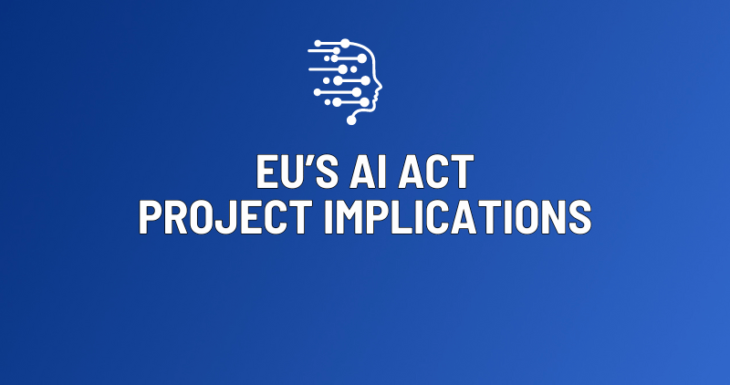In light of the imminent enactment of the European Union’s AI Act, we’ve made the strategic decision to temporarily pause some of our projects. This move is both cautious and necessary, given the comprehensive nature of the AI Act and its implications for AI development and application across industries.
Introduction to the AI Act
The AI Act represents a pioneering legislative effort by the European Union to regulate the use of artificial intelligence, marking a significant step towards ensuring AI technologies are developed and deployed in a manner that is safe, ethical, and respects fundamental rights. The Act categorizes AI systems based on their perceived risk levels, from minimal to unacceptable risk, and outlines specific requirements and prohibitions aimed at mitigating potential harms associated with AI technologies.
Key provisions of the AI Act
- Prohibited practices: Certain uses of AI will be entirely banned within the EU, such as the creation of facial recognition databases similar to Clearview AI’s, or the deployment of emotion recognition technology in work or educational settings.
- High-Risk AI systems: The Act identifies specific domains where AI systems are considered high-risk, including employment, essential public services, and the administration of justice. These systems will require rigorous documentation, risk assessment, and transparency to be legally deployed.
- General purpose AI systems: The Act also pays special attention to general-purpose AI (GPAI) systems, like generative AI models, setting forth specific obligations for these technologies, including the need for detailed technical documentation and evaluation protocols to identify and mitigate systemic risks.
- Compliance and enforcement: The AI Act establishes a European AI Office to oversee compliance and implementation, backed by the potential for significant fines for noncompliance, ranging from 1.5% to 7% of a firm’s global sales turnover.
- Global impact and compliance: By being the first of its kind, the AI Act is poised to set a global standard for AI regulation, affecting not just EU-based companies but any global entity wishing to operate within the EU market.
Why we’re pausing projects
The decision to pause certain projects stems from our commitment to full compliance with the AI Act’s requirements. Given the Act’s broad scope and the intricate details involved in its compliance mechanisms, we believe it prudent to reassess our projects to ensure they align with the new regulatory framework. This period of reassessment will also allow us to understand better how our innovations can continue to contribute positively within the new legal landscape, ensuring that our technologies remain at the forefront of ethical AI development and deployment.
Moving forward
We are closely monitoring the development and finalization of the AI Act and are in the process of conducting thorough reviews of our projects to identify necessary adjustments. Our goal is to ensure that our AI technologies not only comply with the new regulations but also continue to lead in innovation, safety, and ethical considerations.
We appreciate the patience and support of our users, partners, and stakeholders during this period. Our commitment to advancing AI technology responsibly and ethically remains unwavering, and we look forward to continuing our work under the new regulatory framework established by the AI Act.
This pause is a strategic step towards ensuring that our projects will not only comply with the EU’s regulatory environment but also set a standard for responsible AI development globally. We will provide updates on our progress and plans as we navigate through this transitional period, fully embracing the opportunities for innovation and leadership that the AI Act presents.
